The sun is out full time these days, at least here in the desert! Most of us, especially those of us with children, are spending more and more time outside, soaking up the Vitamin D and filling our cups with warmth and solar energy.
I don’t know about you but these days I look for the following when it comes to non-toxic natural sunscreen:
- It must be a reef safe sunscreen
- It must be a plant based sun screen
- It must offer strong SPF protection against UV rays and free radicals
- It must be affordable
- And it must be the best natural sunscreen for my entire family (basically baby and kid friendly sunscreen)
Did you know that certain natural plant based oils offer SPF protection from the sun that is better than the protection found in any commercially produced natural sunscreen?
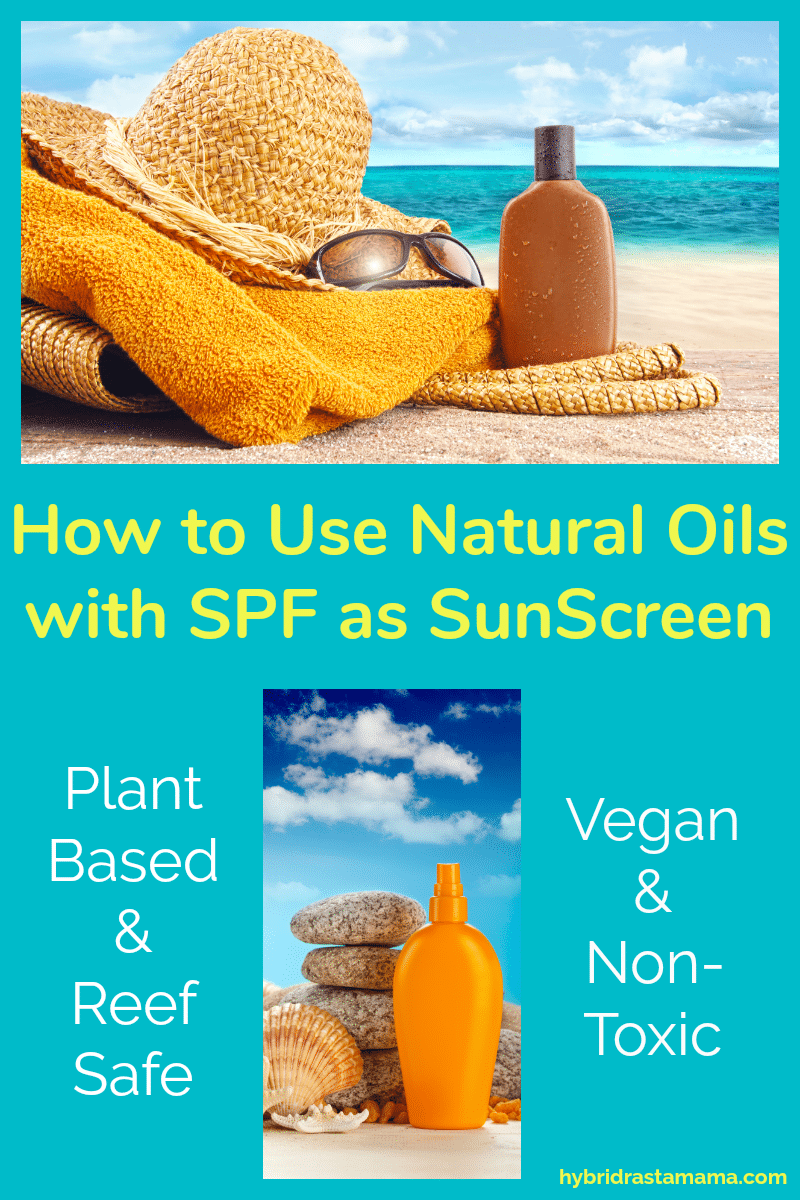
Combine one or more of these oils and you have created a divine concoction of safe sun protection that anyone in your family can confidently use. This makes finding and using a chemical free natural sunscreen a breeze.
I have listed the best natural oils for sun protection in SPF order with the exception of the first oil. This is because Red Raspberry Seed Oil is known as the only natural oil for sun protection that protects against BOTH UVA and UVB rays. Combine it with Carrot Seed Oil and you have a natural sunscreen powerhouse. Check out how I make sunscreen with coconut oil, red raspberry seed oil, and carrot seed oil here.
It is important to note that since not all oils are created equal, the SPF can vary when it is on your skin. Determining the exact SPF factor of an oil is difficult, especially given that natural oils oxidize over time and when exposed to light. Please use caution and always purchase new oils each year.
And without further ado….
The Best Natural Oils For Sun Protection (Natural Sunscreen)
Red Raspberry Seed Oil – Red raspberry seeds contain high levels of omega 3 and omega 6 essential fatty acids in addition to antioxidants and natural vitamin E. According to Anthony J. O’Lenick, author of “Oils of Nature,” red raspberry seed oil has a natural SPF between 28 and 50 and may also contain clinically significant anti-inflammatory properties. In addition, red raspberry seed oil protects against UVA & UVB rays. I like this brand.
Carrot Seed Oil – Carrot seed oil is an essential oil with significant antioxidant, antiseptic, antifungal and fragrant properties with high levels of vitamin A. When applied topically to the skin in the form of a diluted carrier oil, carrot seed oil also provides natural sun protection. According to a study published in “Pharmacognosy Magazine” in 2009, carrot seed oil has a natural SPF of 38 and 40. I like this brand.
Wheatgerm Oil – Wheatgerm is one of the best sources of natural vitamin E and is also a good source of vitamin K, B vitamins and choline. When applied to the skin, wheatgerm oil helps to moisturize tissues and acts as an antioxidant to prevent free radical damage. Wheatgerm oil has a natural SPF rating of 20. This is a good deal and you get a lot of it.
Soybean Oil – Properly fermented soybeans are a rich source of essential fatty acids, protein, lecithin, iron and calcium in the diet. When used topically on the skin, soybean oil is a cost-effective moisturizer compared to other oils and has a natural SPF of 10. I like this non-GMO soybean oil.
Shea Butter – While not an oil, shea butter is derived from the fat of the shea nut. Shea butter melts at body temperature and absorbs rapidly into the skin without leaving a greasy feeling. It contains the antioxidants, vitamins A and E both of which enhances skin cell regeneration and promote blood circulation below the skin’s surface. Cinnamic acid in the oil provides vital protection against harmful UV rays. Its rich emollient quality makes it excellent for very dry skin. SPF 6-8. I only get my shea butter through here.
Macadamia Oil – Macadamia is known as the” king of nuts” and its oil is known to have almost the same properties as sebum. Sebum is the oil produced by our sebaceous glands to protect the skin from dryness and in a way makes skin and hair waterproof. Macadamia nuts provide vitamins, minerals and antioxidant fatty acids. Good sources of magnesium, iron, phosphorous, potassium and vitamin E, the oil from Macadamia nuts also contains a natural plant chemical called cinnamic acid which provides a variable SPF level of 6. This is a good buy on this oil.
Hemp Seed Oil– The oil extracted from hemp seed is said to closely resemble the body’s natural lipids. Lipids refer to molecular compounds considered important for cell growth due to their large carbon and hydrogen content. Lipids do not easily mix with water because their properties are more related to fat substances, although not all lipids are fats. As sunscreen protection, it is easily absorbed by the skin to provide the essential fatty and essential amino acids as well as other nutrients. All these are needed for proper keratin formation in the skin, teeth, nails and hair as a major protein component. Hemp seed oil has an SPF rating of 6. I love this oil.
Coconut Oil – Coconut oil has an amazing ability to heal the skin and block the damaging effects of UV radiation from the sun. One of the reasons why it is so effective in protecting the skin is its antioxidant properties, which helps prevent burning and oxidative damage that promotes skin cancer. There have been several recent studies done on the use of coconut oil as a sunscreen but there are fluctuations in the SPF rating of coconut oil. One study “proved” a rating of only 4 while another rated coconut oil at a 10. I love these coconut oils.
Jojoba Oil – Jojoba is a desert shrub effective for treating eczema, psoriasis and dry skin.Jojoba oil is more correctly described as liquid wax. Like Macadamia oil, the properties of jojoba oil are akin to that of human sebum or the skin’s natural oil. As a sunscreen ingredient, jojoba oil not only provides natural moisturizers for the skin but also provides healing and anti-inflammatory elements through its natural substance called myristic acid. Myristic acid is a form of fatty acid naturally occurring in plant oils. This oil has an SPF rating of 4. I love this brand of jojoba oil.
Sesame Seed Oil – Sesame seed oil is said to be composed of 20% protein and 50% lipids which gives the gamma tocopherol (Vitamin E) content. Tocopherol provides stable anti-oxidative mechanisms which include eliminating free radicals. UVR rays are said to be capable of activating the release of free radicals in skin cells. The characteristic of being stable means they do not easily breakdown under the sun’s UVR or when kept in storage. As a sunscreen ingredient, it has an SPF rating of 4. I like this oil.
Grapeseed Oil – This oil is said to be rich in oligometric proanthrocyanidins or OPC. These are like the sesame seed oil components which hunt down free radicals that cause aging, with the purpose of eliminating them from the body system. Studies show that the OPC in grapeseed is twenty times more effective than vitamin C in eradicating free radicals in its function as an antioxidant. The antioxidating capabilities also promote the self-repair process of cells, which is important when the skin becomes affected by the sun’s UVR rays. The SPF rating for this oil as a sunscreen ingredient is 4. I like this oil.
Avocado Oil – This fruit is highly regarded by the Aztecs of Mexico for its high nutritional content. Avocado oil is rich in vitamins A, B, D and E , fatty acids and lecithin. Avocado oil has quick-acting capacity to be absorbed by the skin tissue and provides the skin with emollients that can hydrate, nourish and regenerate the epidermis or the outer skin layer. Avocado oil has an SPF rating of 4. I like this oil.
Sea Buckthorn Oil – The fruit or berries of the sea buckthorn plant appear to be an unsurpassed natural source of vitamins A and E, carotenes and flavonoids. They are also rich in several other vitamins, including B1, B2, K and P as well as in more than two dozen microelements. Sea buckthorn oil is known for reducing the damaging effects of the sun’s radiation. The restorative action of sea buckthorn oil may be partially due to the high content of fatty acids and essential fatty acids, carotenes, tocopherols and phytosterols, all important for the maintenance of healthy skin. The fatty acid content of seabuckthorn berry oil is 80 – 95%. The major fatty acids contained in sea buckthorn oil are oleic and linoleic acids. It has an SPF of 2-4. This is a top-shelf brand of sea buckthorn oil.
Rice Bran Oil – Rice bran oil contains gamma oryzanol, a naturally occurring plant byproduct. The chemicals in gamma oryzanol suppress the rising melanin levels thereby blocking the transmittance of ultraviolet rays through the surface of the skin. This process whitens the skin a slight amount and has historically been used in Japanese culture to produce a glowing complexion. It has an SPF of 2-4. You can grab some here.
In addition to using these oils as natural sunscreen, there are many, many foods you can consume that are known to provide protection from UV and free radical damage.
Here are a few of my favorites:
- Egg yolks
- Green and black tea
- Peanuts
- Kale
- Cabbage
- Broccoli
- Mustard greens
- Collard greens
- Yams
- Salmon
- Tomatoes
- Blueberries, blackberries, goji berries
- Grapes
- Yellow, red or green peppers
- Omega oil (specifically cod liver oil)
I need to say a little bit more about Cod Liver Oil. Cod liver oil is a natural anti-inflammatory rich in omega-3 acids. These are the fatty acids that your skin needs to protect itself from the sun. Cod liver oil is also an excellent source of vitamin D itself (after sun exposure, fish are considered the most significant source of vitamin D). Multiple studies have now been performed revealing that regular supplementation with cod liver oil may reduce sun damage, in some cases as much as doubling a user’s resistance to sunburn.
Cod liver oil does not block the sun’s rays from hitting your skin.
Instead it works by increasing your skin’s ability to ward off the dangerous effects caused by those rays. The omega-3 fatty acids in cod liver oil reduce the excess inflammation induced by UV tissue damage. This inflammation, visibly seen as sunburns, can otherwise cause further damage to your skin cells, much more so than the UV damage itself. By inhibiting the production of inflammatory agents, cod liver oil in effect minimizes the damage to your skin.
Eating the above mentioned foods and supplementing with cod liver oil (this is my favorite brand) will not magically protect you on day one. There is a body serum level that needs to be reached before you will be fully protected. This takes about 8 – 12 weeks of every day consumption of foods and supplementation.
Another tip for getting the most protection while out in the sun… DO NOT BATHE before going outside of an extended period of time. What we are doing to our skin by washing off natural oils is causing it to be more susceptible to the sun’s rays. We are leaving our largest organ with no protective barrier. Human sebum has a natural SPF of 6-8. Why would you want to wash that off?
In addition, try not to bathe immediately after coming in from a day in the sun. Your body needs time to finish processing the Vitamin D and UVA/UVB rays. Try to wait at least an hour before showering.
I recently wrote a great post which discusses the best way to build a gradual base tan. I also explained different skin types and how the sun effects each. Head on over to Coconut Oil and Sun Protection to read more! And don’t forget to check out the many other awesome uses for coconut oil.
Are you looking for more posts about sunscreen and sun protection? Check these out!
How do you protect yourself from too much sun? What are your favorite products for natural sun protection?
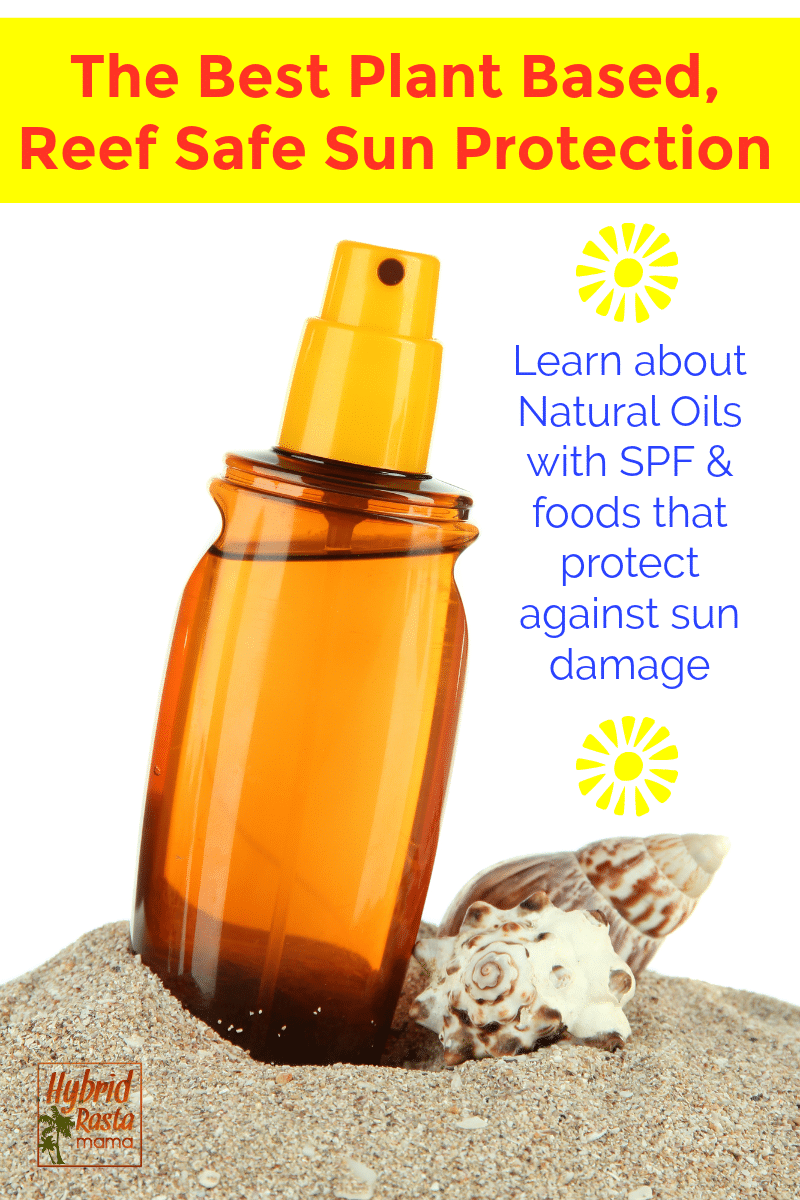



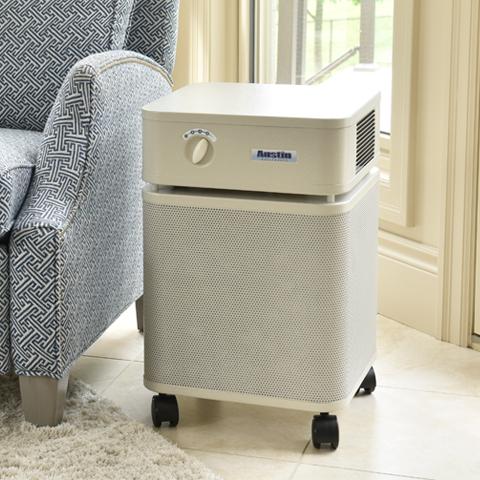
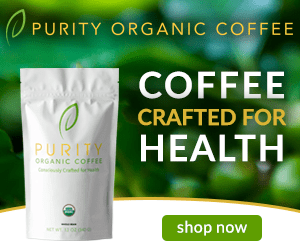


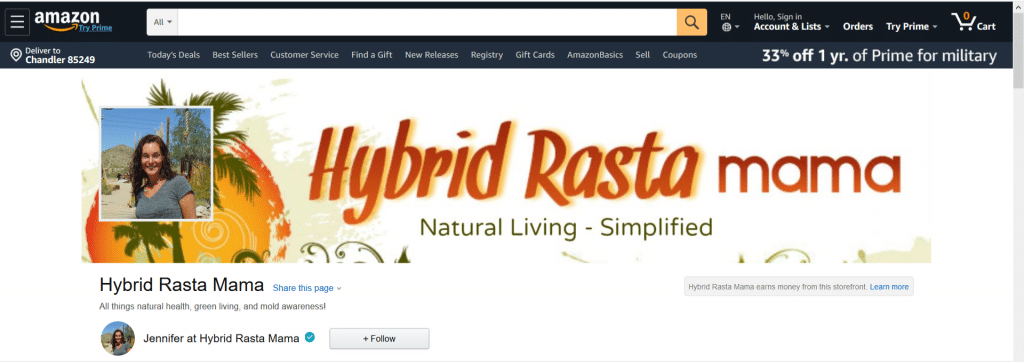
Susan Miller says
Thanks!
specialkcg says
Thanks for posting this! Can’t wait to try some new recipes. I have naturally built in sunscreen since my skin is dark but my sun is mixed ethnicity and I don’t feel comfortable putting chemicals on him!
naderah says
Hey,
I just wanted to say that my skin is dark also but, that doesn’t mean you are excluded from skin cancer. We all need a form of sunblock.
Sofia da Silva says
People with dark skin are more likely to become vitamin D deficient, they need to spend more time in the sun without protection than pale people. All in moderation of course.
Jennifer says
Yes, this is very true! I have to watch this because my daughter has darker skin.
Jess says
Starting tomorrow I’m slathering coconut oil on me and the girls before we go outside. I suppose you’d say I’m a level 3, olive-y skin, don’t typically burn, maybe a little on my nose and shoulders. It’s looking like the girls have more of their daddy’s skin tone though… Thanks Jen, as always.
L.A. says
I am a skin type 2 and wanted to know what your thoughts would be on mixing carrot oil or raspberry oil with the coconut oil for sun protection? Where do you purchase your carrot and raspberry oil from?
Hybrid Rasta Mama says
@L.A. I mix coconut oil with carrot seed oil and really love the mix! I get my carrot seed oil here:
http://www.amazon.com/gp/product/B0066SJ254/ref=as_li_ss_tl?ie=UTF8&tag=hybrasmam-20&linkCode=as2&camp=1789&creative=390957&creativeASIN=B0066SJ254
Raspberry oil is hard to find right now. I am searching for some myself! I will keep you posted!
L.A. says
Thank you for your help:)
@Hybrid Rasta Mama
Karen lee Hallam says
I made a bug repellent with the base of grapeseed oil and upon apply this to my legs, noticed I wasn’t tanning ( or burning) on my legs–to my dismay. I thought, well, the oil must have a natural sunscreen ; then I found your blog. 🙂 A very informative blog you have.
Anonymous says
Hi, I was wondering where you got that picture of the sun. Did you take it yourself?
Jennifer Saleem says
@Anonymous Yes, I took in when we were in Jamaica! Amazing isn’t it!
melissa says
Hi, I noticed some commenters mentioning what “skin type” they were (skin type 2, 3 etc) .. Um, I’m wondering what is that all about and how do I find out my skin type? I’m very light-skinned.
Jennifer says
Hi Melissa! Here is the post with the Skin Type info. http://younglivingoillady.com/home/coconut-oil-and-sun-protection/. I am working on getting you some sources for the SPF question you asked!
melissa says
Also, what is in these oils that give them the SPF power? Thank you
Jennifer says
The short answer is that plants have built in sun protection which is found in their oils. This is what keeps them from browning in direct sunlight. When you extract these oils, you benefit from the sun protection. If you would like links to studies and all the “sciency” stuff, let me know!
Deedee Ricketts says
I love the information you have here! I’d love to learn more about the “sciency stuff”. Please send me some of the links.
Thanks,
Deedee
Jennifer says
The book I consulted was Oils of Nature. http://www.amazon.com/gp/product/1932633340/ref=as_li_ss_tl?ie=UTF8&camp=1789&creative=390957&creativeASIN=1932633340&linkCode=as2&tag=hybrasmam-20
Unfortunately, it is an out of print book and not every library has a copy. I had to search long and hard to find one available.
A couple of articles I found were:
http://www.ncbi.nlm.nih.gov/pubmed/21808534
http://www.academicjournals.org/ajb/PDF/Pdf2005/Jan/Athar%20and%20Nasir.pdf
Hope this helps!
Hope this helps a little!
AJ says
http://www.scribd.com/doc/57394832/Oils-of-Nature
The website has the book digital.
NATALIE says
Hi Jennifer,
Could you possibly share some of the links/research articles you referenced for this post? I’d love to read in more detail! Thank you!
Natalie
Jennifer says
Hi Natalie! I have this book: https://amzn.to/2VeIrlo. It hard to find these days but it is a fantastic resource.
Jennifer Edwards says
Hi, I ran across your blog while doing a google search for uv protective oils. I was just wondering if you have any idea how comedogenic red raspberry seed oil is? Would it be ok for acne prone skin? I’m currently using hemp oil, and am considering buying some zinc powder to mix with that, but I’m really curious if rrso would work well too. I can’t seem to find any answers online or find it listed on any of the comedogenicity charts I’ve seen. Thanks so much!
Jennifer says
I am still looking into this for you! Trying to get a hold of a copy of a book that is out of print that I KNOW will have the answer!
Lisa says
Hi! Thanks so much for this article! I was still looking for a good natural sunscreen as I try to get away from using the regular chemical ones since they may do harm, but just using oils sounds even better and as natural as it gets! What would I do to use this? Should I just pick two such as the coconut oil and carrot seed oil and mix them together? Or could I just use the carrot seed oil and buy a bottle of that since it has a high spf level? What have you been using and how has it worked for you? 🙂
leasing-samochodowy-warszawa.pl says
Oh my goodness! Amazing article dude! Thank you, However I am
going through troubles with your RSS. I don’t understand the
reason why I cannot join it. Is there anyone else getting the same RSS problems?
Anybody who knows the solution can you kindly respond?
Thanks!!
Angela says
HOW HELPFUL! i’m going pure and natural and was wanting SPF oils and here they are.
Thank you!
Shannon says
I have found this information very informative! I’ve been researching natural ways that I can protect my skin. You see, I am highly sensitive to UVA/UVB rays. I was diagnosed in high school with a UV allergy. I have to stay covered up in the summer because I will break out and itch. My lips swell, my face gets blotchy and itchy…and it takes me at least a week to recover from one outing outside…and that’s with the one lotion I can use, a hat and legs/arms covered.
One of my issues is that I have highly sensitive skin and the only lotion I use is not sweat proof…and then I’m hot, I begin sweating, and it’s nearly impossible to reapply when you are sweating.
I was hoping that the essential oils, because they are so quickly absorbed, wouldn’t lose their potency when I sweat. What are your thoughts? Is there a way that some of these oils could be mixed to build upon each of their SPF’s?
Thanks!
Jennifer says
Hi Shannon! I mixed these together all the time. I love coconut oil with carrot seed oil the best. It offers great protection and stays put!!!! Carrot seed oil doesn’t sweat off as easily as some of the other oils. I usually only have to apply it every three hours or so if I am sweating a lot. The good thing about it is that it is easy to apply over sweat! I would give that combo a try first and see what you think. http://www.amazon.com/gp/product/B002RT0JOO/ref=as_li_tl?ie=UTF8&camp=1789&creative=390957&creativeASIN=B002RT0JOO&linkCode=as2&tag=hybrasmam-20&linkId=VWJOY35IQ35IVYHV There is the link to a great carrot seed oil.
eva says
hey
i read somewhere that these great oils do have protection against uvb rays… but not against uva rays? is that correct you think?
do the rasperry seed oil forinstance have no uva protection?
Jennifer says
Hi Eva! Red Raspberry Seed Oil protects against UVA & UVB rays. It is one of the ONLY natural oils with this protection. This is why I always add it to my sunscreen blend.
AnnBeth says
I have fair skin and have been using jojoba and coconut oil for years. Here’s another super healthy tool I used after I’d been indoors all winter and I couldn’t even walk outside without burning: drink a big glass of carrot juice every day. The orange color gives the skin a beta-carotene protection, not to mention the internal anti-oxidant protection. No worries, your skin will not turn orange. Just be sure your juice comes from organic carrots, as carrots absorb a lot of pesticides from the soil.
AnnBeth says
P.S. After 2-3 weeks of drinking carrot juice, I was able to walk outside with nothing on my skin and no more sunburn.
Jennifer says
Oh how cool! I remember this was the case with my grandfather who took up a carrot juice detox for a month. He noticed that his sun tolerance was greatly increased. Thanks for sharing your experience!
Sarah says
Thank you for your wonderful words of wisdom I’m looking forward to using all this wonderful information
patris says
I use the 3 Berry Serum from Made From Earth – Its moisturizes my 60+ skin and has repaired some of the sun damage I got from not using sun screen for most of my life. It doesn’t leave my face greasy or tacky. I can’t say enough good about it…..
Alex says
I love this article and your other work!
Would it be possible for you/anyone to please share any scientific studies which support the SPF claims of these oils?
Thank you!
Alex
Jennifer says
Hi Alexander,
I sourced my information from several articles on PubMed but you have to have a membership to read those. However, you can type in the specific oil name and some decent abstracts might pop up.
This paper might help you:
http://saspublisher.com/wp-content/uploads/2013/11/SAJP26458-463.pdf
I have Anthony J. O’Lenick’s book “Oils of Nature,” but it is out of print. You might be able to find it at the library. This is where all the solid information is!
Let me know if you have any other questions. Thanks much!
secret sumatra says
Wow! Thank you! I permanently needed to write on my website something like that.
Can I include a portion of your post to my site?
Chixyz says
Hello,
Thanks for the tips. Any directions on how to mix coconut oil and carrot seed / any other combo
Jennifer says
This post ought to help! http://hybridrastamama.com/make-sunscreen-using-coconut-oil-carrot-seed-oil-raspberry-seed-oil/
David Johnson says
I didn’t realize that you can combine different oils and they create a divine concoction for safe sun protection. I’ll also have to look into after sun care lotion. That way our skin can recover from any damage it may have received.
Karki says
Wow! This is actually a great post. Hope the readers can easily understand the benefits of oil listed above.
Kenny says
Two questions. 1. I recall seeing a post on your site about a “spray” version of a natural sunscreen but now I can’t find it. Can you send mea link to that one (recipe)? and 2. I love your website but I have a skeptical son in law and would love it if you would post links to studies (peer reviewed) that supported what you say about the natural oils as sunscreen and protection from sun etc. It would be helpful to silence “the skeptics”.